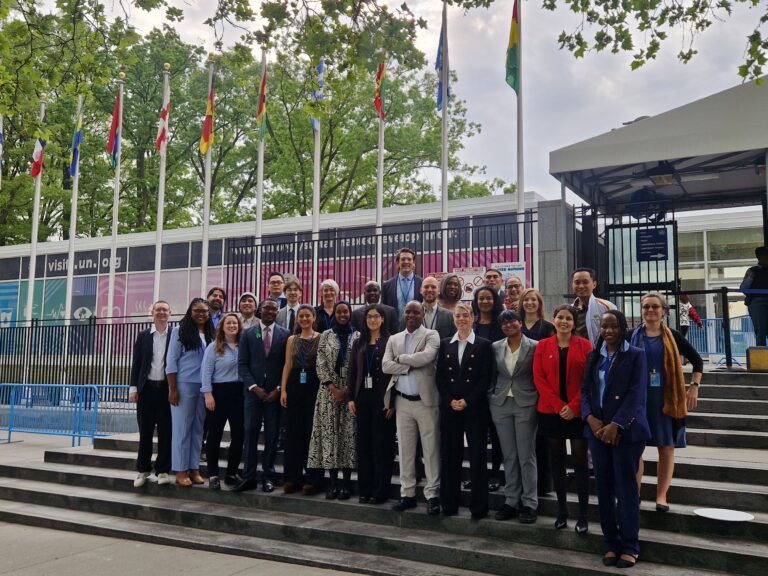Ensuring the voices of mental health civil society are truly represented and heard
By James Sale, Deputy CEO of United for Global Mental Health

Photo: The Global Mental Health Action Network gathered over 40 mental health professionals, lived experience experts, and campaigners in New York to participate in the Multistakeholder Hearing
Traditionally, the global health sector has been dominated by large civil society organisations (CSOs) based in high-income countries speaking on behalf of everyone else. Mental health has too often been left behind.
UnitedGMH has always sought to do things differently: we want CSOs from Low-Middle Income Countries and particularly People with Lived Experience to be heard directly.
As secretariat for the Global Mental Health Action Network – with over 6,000 members in 170 countries – last week in New York we made sure that the voices of mental health civil society were truly represented and heard.
In September, the UN General Assembly will host the High-Level Meeting on Non-Communicable Diseases and Mental Health (HLM), which will be a watershed moment for mental health as it will be the first time mental health has been so prominent in a UN meeting of this type. By the time of the HLM, many of the outcomes will have been decided, so it is the build-up that counts.
Last week’s Multistakeholder Hearing in New York was critically important to that build-up. Civil society organisations and governments discussed what they want to see achieved at the HLM. The Global Mental Health Action Network (supported by the UGMH team) gathered over 40 mental health academics, lived experience experts, campaigners, and service providers in New York to participate in the Hearing and leave governments in no doubt as to the importance of mental health in the HLM. CSOs came from a wide range of countries – from Barbados to Ukraine – to make the case for change.
Non-communicable diseases and mental health share many of the same challenges and solutions; however, there are unique aspects of mental health that require special attention, such as suicide prevention.
The HLM is a significant opportunity to secure new progressive commitments from governments to deliver high-quality, rights-based, integrated person-centred mental health services, integrated into tertiary, secondary, primary and community-based prevention and care.
The GMHAN has identified the critical need for progress on four unique issues:
1) Child & adolescent mental health
2) Suicide prevention
3) Moving away from mental health institutionalisation
4) The social and commercial determinants of mental health.
The 40 of us, and many more, explained why these issues matter and what member states need to do – domestically and internationally.
We met 23 governments and the European mission, including the countries facilitating the HLM (Luxembourg and St Vincent and the Grenadines). All governments expressed support for mental health in general, and for many of our priority areas in particular, e.g. youth mental health. The governments we met understand the need for change nationally and internationally and agree how to achieve this through the HLM process. However, we were made aware some governments do not want progressive mental health commitments in the HLM.
We need to keep encouraging member states to advocate for action on mental health: we are far from securing the outcomes for mental health at the HLM that everyone around the world deserves.
Now governments are negotiating what should be in the Political Declaration for the HLM. This declaration will be one of the main outcomes of the meeting, and will acknowledge the current situation for NCDs and mental health across the world and what should be done about it. Now is the time to call on governments to be ambitious.
To get involved, send this briefing to your government and call for them to take action on the points it raises.